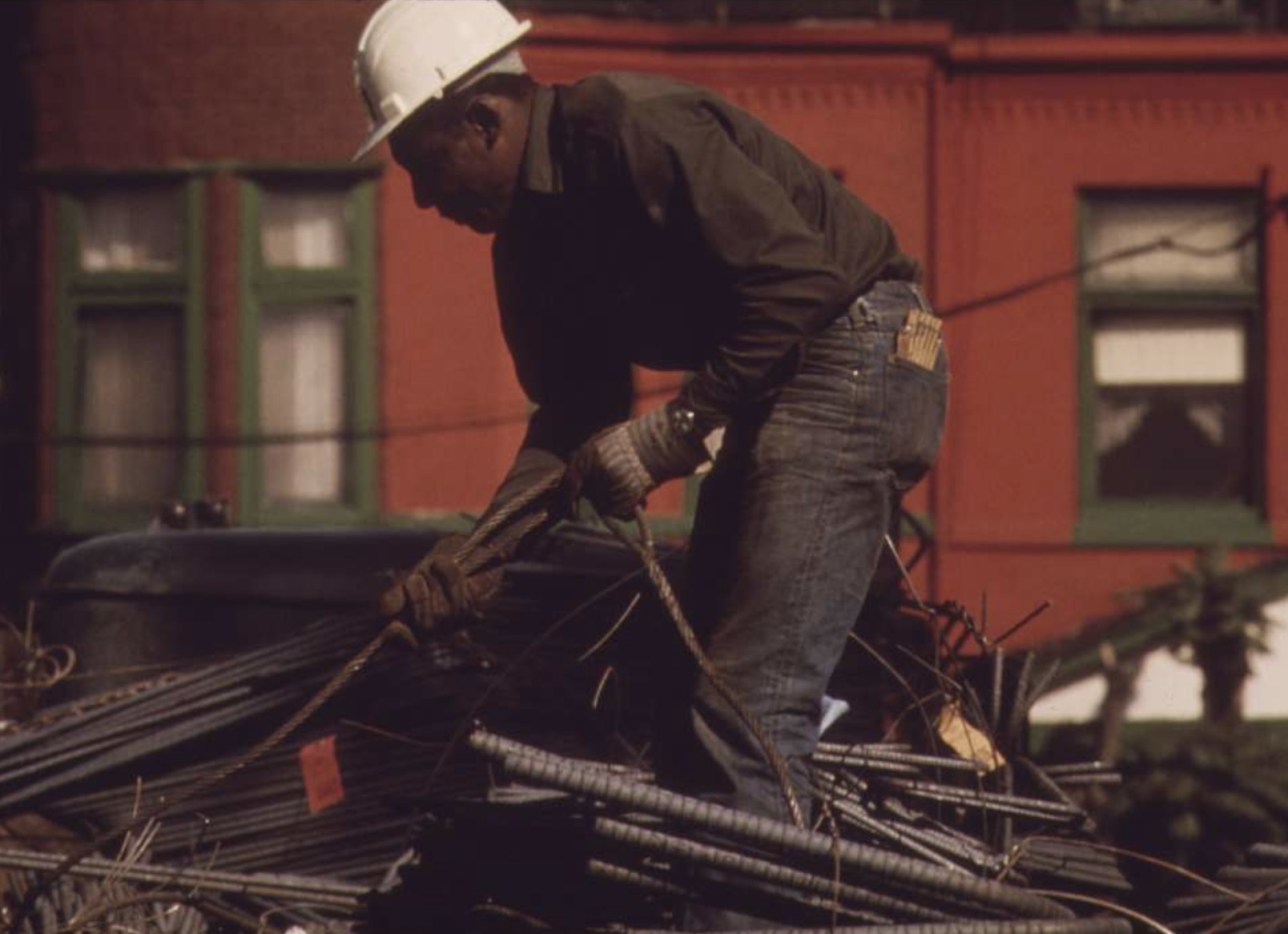Have a story idea
Have a story idea? Send it to us here.

Source : National Archives and Records Administration
June 29, 2025
Author : Patty Alen
New statistics show that only 6.8% of all U.S. construction companies are owned by Black individuals. This number shows that there is still a gap in one of the country's most important industries.
Pew Research released a report in February stating that Black-owned businesses have grown significantly across the country in the past few years. However, there are still not many of them in fields like manufacturing and construction.
Black-owned businesses have grown in fields like health care and administrative support. Experts in the field say that structural barriers, such as limited access to cash, historical exclusion from union and apprenticeship networks, and a lack of participation in large public infrastructure projects, are to blame.
They found that many Minority- and Women-Owned Business Enterprises (M/WBEs) are still having trouble growing or competing in urban construction markets.
A different study from the Brookings Institution shows how important Black-owned companies have been to recent economic growth, especially in service-based industries. But the construction industry is still only growing slowly, and many companies say it's hard to get big contracts or get into government procurement pipelines.
This year, 2025, the talk about fairness in contracts has also become more political. A variety of diversity, equity, and inclusion (DEI) requirements in government contracting are being rolled back by the Trump administration.
Black business leaders say that progress made in recent decades could be lost if institutions aren't protected. This is especially true in industries like public works and government-funded construction, where big companies control much of the bidding process.
Smaller Black-owned construction companies often have trouble because of the amount of capital needed, the need for insurance, and the bonding rules. Programs such as local set-asides, business development funds, and mentored partnerships aim to promote fairness, yet their implementation varies significantly among states and municipalities.
A previous article in Contractor News looked at how historical redlining and wealth gaps still affect Black entrepreneurs today, making it harder for them to get loans or buy the tools they need to compete on bigger projects.
As the federal government continues its multi-year infrastructure rollout, supporters say that now is the right time to get more Black businesses involved in building. Without active inclusion, public investment may not reach many areas and will only make long-standing inequality worse.
Category : Minority Business Enterprises Minority Women Business Enterprises Department of Transportation State Government Bridges Freeways and Highways
